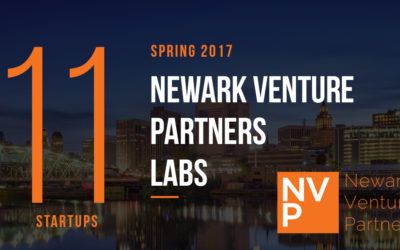Entrepreneurs look at crowdfunding opportunities
In the third meeting for the group, Duccini and Jade Barker, a consultant for Silicon Prairie, were invited to present on MNvest and how it allowed them to create a crowdfunding portal company.
The presentation was based on the idea of how to create equity, and “the democratization of capital,” as Duccini said.
From about 1933-2012, not much was changing in the investment sector.
No public share promoting was authorized and it was all under tough regulations that limited what a small business could do.
Then, in 2012, the Jumpstart Our Business Startups (JOBS) Act was passed to encourage small businesses.
“In Kickstarter, you’re investing in a dream and you’re getting something like a t-shirt for donations,” Duccini said.
For MNvest, the issuers, or the individual investors or businesses investing in the business, must have a main office in Minnesota.
This law is specifically limited to those within the state.
Another limitation is $10,000/deal, unless the investor is an angel investor or a venture capitalist.
A major point Lois Josefson, one of the founders of FF Area Entrepreneurs and Creators, was that of the angel investor tax credit.
Tradeshift hoping to ready initial public offering, says CEO
Tradeshift hoping to ready initial public offering, says CEO.
Speaking on the sidelines of the World Economic Forum in Dalian, China, Christian Lanng cited advice that he had received on his first trip to Silicon Valley from LinkedIn co-founder Reid Hoffman.
Years ago, Lanng said, the LinkedIn and PayPal entrepreneur told him that companies should never sell if they think their long-term market is bigger than the acquirers. “I think the track we are on right now and the growth we are seeing … Our future market is pretty big so any potential acquirer would have to match that,” he explained.
When pressed whether his comments could be interpreted as the firm being willing to be acquired at the “right” price, Lanng replied, “Maybe.”
The start-up, which connects businesses to simplify their expense systems, is hoping to be ready to IPO (initial public offering) within the next couple of years and, according to Lanng, it was “very lucky” to have investors looking to position Tradeshift for the long term. “I don’t think about an IPO as an exit, I think about it as a stage in a company’s growth,”Lanng said. “I never comment on any kind of acquisition rumor, there’s just too many variables,” Benioff said.
Tradeshift recently raised $75 million from a number of big-name investors, including HSBC.
The latest funding round valued the company at around $600 million, according to a source close to the situation.
Blue Apron slashes its IPO range
Blue Apron, which delivers ingredients for meals people can cook at home, on Wednesday slashed the range of its initial public offering.
Last week, the company submitted a filing that kicked off the process to go public on the New York Stock Exchange under the symbol “APRN.”
The company is now in the final stages of preparing to go public in an already competitive meal-kit landscape.
New York-based Blue Apron, though, still holds the title of being the largest U.S. meal-kit delivery service.
Blue Apron said Wednesday it now estimates the net proceeds from the sale of class A common stock in its IPO will be about $292.7 million.
Despite the high valuation Wall Street is looking for, Blue Apron has never turned a profit.
In fact, the company has posted steeper net losses each year since 2014, according to regulatory filings.
Other players in the meal-kit space include HelloFresh and Chefs Plate.
One threat for these companies, including Blue Apron, is that more than half of meal-kit subscribers cancel their subscriptions within the first six months, according to data from Cardlytics.
Blue Apron’s offering is expected to be priced Wednesday, and the stock is scheduled to debut Thursday on the NYSE.
Alibaba ups its stake in Southeast Asia’s Lazada with $1 billion investment
Alibaba is doubling down on Southeast Asia after it announced a deal to pay close to $1 billion to raise its stake in e-commerce firm Lazada from 51 percent to 83 percent.
The Chinese firm made an initial $1 billion investment in April 2016 at a valuation of $1.5 billion — this second deal raises that valuation to $3.15 billion, Lazada disclosed.
The deal sees Alibaba buy shares from existing backers, including Rocket Internet — Singaporean sovereign fund Temasek and the Lazada management team are the only investors that kept hold of their stock.
It also reflects that Alibaba continues to be extremely positive about this region, doubling down on Southeast Asia and seeing the potential,” Lazada CEO Max Bittner told TechCrunch in an interview.
Bittner declined to provide specific financial figures for the business.
But he said that “explosive growth” since the first investment has seen Lazada’s base of merchants increase to over 100,000 with more than 80 million SKUs available to consumers.
Founded by Rocket Internet in 2012, Lazada currently serves six countries in Southeast Asia.
That growth potential has made the region one of a series of bets for Alibaba to diversify its revenue and lessen its reliance on its business in China.
While the company is predicting a significant rise in revenue for its current financial year, it is hedging its bets on emerging markets, which also include significant investments in Paytm and Snapdeal in India.
Bittner declined to say if Lazada would follow suit — it hasn’t launched in a new market for three years — but he did say he is open to new opportunities.
Flip gets $2.2 million to grow its marketplace for long-term sublets
Flip gets $2.2 million to grow its marketplace for long-term sublets.
For anyone who’s ever wanted to break a lease, but felt trapped by their contract, Flip has the service for you.
The company, which allows users to sublet or get out of their lease, has just raised $2.2 million in new financing to grow its business and is looking to expand beyond its suite of offerings to renters in San Francisco, Los Angeles and New York.
“The nature of the people who are using us are people who want that flexibility.” The New York-based company was born out of the desperation of its CEO.
While attending grad school at Columbia, Vila found herself desperately searching for a way out of a living situation with an ex-boyfriend.
So, Flip was born.
The whole point of Flip is to facilitate legally subletting an apartment for a long-term stay.
Average Flip leases typically come in at about six months, but the agreements can range anywhere from three months to a full year.
Flip handles credit checks and assures that a would-be tenant can afford the lease they’re looking to take over.
Flip had previously raised $1.2 million from Joanne Wilson, Scott Belsky, Techstars Ventures, Built by Girls Ventures (which is backed by TechCrunch-owner AOL), V1 Ventures and MetaProp NYC.
Mersana Therapeutics Announces Pricing of Initial Public Offering
Mersana Therapeutics Announces Pricing of Initial Public Offering.
CAMBRIDGE, Mass.–(BUSINESS WIRE)–Mersana Therapeutics, Inc., a clinical-stage biotechnology company focused on discovering and developing a pipeline of antibody drug conjugates (ADCs) based on its proprietary Dolaflexin® platform with DolaLock payload technology, today announced the pricing of its initial public offering of 5,000,000 shares of common stock at a public offering price of $15.00 per share for aggregate gross proceeds of $75,000,000.
The shares are scheduled to begin trading on The NASDAQ Global Select Market on June 28, 2017 under the ticker symbol “MRSN.”
J.P. Morgan, Cowen and Leerink Partners acted as book-running managers for the offering.
A registration statement relating to these securities was filed with, and was declared effective by, the Securities and Exchange Commission.
As a result, our platforms create expanded opportunities to deliver meaningful clinical benefit to patients.
Our lead product candidate, XMT-1522, is in Phase I clinical trials.
We expect that our second product candidate, XMT-1536, will be entering clinical trials in early 2018.
In addition, our partners are advancing their pipeline of ADCs using our platform.
Contacts Mersana Therapeutics, Inc. Media Contact Paul Kidwell, 617-680-1088 paulkidwell@comcast.net or Investors Contact Stern Investor Relations, Inc. Christina Tartaglia, 212-362-1200 christina@sternir.com
Things Are Getting Better For Women in Tech, But There’s Still a Long Way to Go
originally appeared on Quora – the place to gain and share knowledge, empowering people to learn from others and better understand the world.
I’ll comment on founders and investors since this is the world I’m most familiar with.
There is an upward trajectory in the percentage of startups with woman founders who receive funding.
Female-founded, VC-funded: The numbers behind venture investment in women.
VCs In addition, according to Techcrunch, 7% of partners at top 100 VC firms are women, from an almost insignificant base twenty years ago.
“In the last three years, according to CrunchBase data, sixteen percent of newly launched venture and micro-venture firms, twenty firms in all, had at least one female founder.
I believe the best thing we can do for women in tech is to devote more time and energy via mentorship.
At Foundation, we host a Female Founders conference each year for exactly this reason.
Education is needed; numbers aren’t enough.
This question originally appeared on Quora – the place to gain and share knowledge, empowering people to learn from others and better understand the world.
This NYC Startup Teaches Finance Through Storytelling
Centsai, the personal finance platform, makes financial education fun and easy to absorb through a variety of blog, games, articles, and video content.
CentSai is a digital personal finance platform focused on making financial education easy and fun.
CentSai provides educational personal finance lessons through storytelling and interactive content.
Another part of the educational aspect is helping the CentSai community understand how they can apply their newfound knowledge using products and solutions that can help them achieve their financial goals.
Through CentSai, we’re also providing platform to connect new and emerging financial brands to users who will benefit from their solutions.
We offer several creative ways for financial brands to market their products and services to the CentSai community, including sponsored content, affiliate marketing, content licensing and bespoke content.
We work only with brands that we believe in and that offer products and services that will benefit our community.
Make sure your product is something people actually need.
I would also like to meet some senior members of the Department of New York Education and showcase our product and how useful and friendly it is for young people to relate to and learn about money.
My cofounder, Arindam and I are based in New York City.
StdLib just raised $2 million to connect businesses via APIs
Six years ago, Keith Horwood was known in his native Toronto as a former graduate student who’d hacked into his school’s student union election site, changing candidates’ titles for comic effect.
He also determined that he’d rather become known in tech circles as an agent for good, and he seems to be working toward that end with StdLib, his roughly two-year-old startup that abstracts away infrastructure using “serverless” architecture, allowing developers to write everything from simple functions to complex business logic, then deploy their code as scalable, fully documented web APIs.
The idea: delivering web services and APIs is a complex problem, and plenty can go wrong between the birth of a business idea and the production implementation of a web service.
StdLib is aiming to solve the problem by making it possible to deploy new updates that are uncoupled from a company’s infrastructure.
Still, investors must think it has a chance at fighting through a growing field of upstarts.
StdLib first passed through the accelerator program AngelPad early last year; today, it’s announcing another $2 million in fresh seed funding led by BlueYard Capital, a Berlin- based venture firm focused largely on the democratization of software development.
Other investors in the round include Joe Montana’s Liquid 2 Ventures; Aston Motes, who was Dropbox’s first engineer; Michael Dabrowski, president of the biotechnology company Synthego; and the Nordic Makers Venture Group.
Horwood says it wasn’t easy breaking into the Silicon Valley scene several years ago, where he first moved to work at Storefront, a company that likens itself to an Airbnb of retail, renting out short-term commercial space.
StdLib has just one other employee: co-founder, Jacob Lee, a Princeton Computer Science graduate who Horwood met at a hackathon early last year.
“Maybe it sounds corny,” he says, “but I wouldn’t trade the experience of the last three years, of living here, of meeting the people I’ve met, for anything.” Picture courtesy of StdLib.
A startup born out of Stanford just raised $50 million to make the brain for self-driving cars
A startup born out of Stanford just raised $50 million to make the brain for self-driving cars.
That car brain comes in the form of a retrofit kit that uses off-the-shelf sensors, like radar and lidar, to help self-driving vehicles navigate.
Drive.ai’s main calling card, however, is its deep learning software that Drive.ai CEO Sameep Tandon says will allow vehicles to learn to handle difficult driving scenarios at a faster pace.
The cutthroat race to get self-driving vehicles on the road has left plenty of room for engineers to launch their own startups.
Traditional car manufacturers are constantly vying for AI talent that tends to gravitate toward Silicon Valley companies, like Tesla.
That demand has created a dynamic where AI experts would rather create their own startups and partner with different car companies rather than work with one outright.
The retrofit kits can be installed on a variety of vehicles, like cargo vans and delivery trucks, Tandon said. “We want vehicles that are constantly moving, constantly being used,” Tandon said. “Over time, we do think that this is something that will make its way into consumer vehicles, but we want to focus on getting them out into the world as soon as possible.”
The Series B funding round led by NEA brings Drive.ai’s total funding to $62 million.
The Biggest Funding Round For An Austin Startup So Far This Year
The Biggest Funding Round For An Austin Startup So Far This Year.
SparkCognition, the Austin-based AI startup, raised a big, $32.5M Series B round led by a couple big time players — Verizon Ventures and Boeing’s HorizonX.
SparkCognition, founded in 2014, is arguably Austin’s leading AI company, and it’s using machine learning to monitor, analyze and predict system failures and cybersecurity breaches for big time companies working in sensitive industries, including aerospace, defense, telecommunications and more.
SparkCognition’s funding comes as VCs, especially those extending from massive companies like Boeing, Verizon, Google, etc, are making increasingly aggressive investments in machine learning and artificial intelligence.
Part of that is likely due to the scale — leading a $32M round is probably too big of a play for local VC firms, whose funds tend to run around $75M to $100M each and typical investments are under $5M per round, per company.
But, local VCs are game for AI.
– South By Southwest announced it has opened the PanelPicker.
That’s the web page and software that collects proposed panel discussions and other presentations.
You can check out a kickoff event at the Microsoft Store in The Domain at 2:30 p.m. (Details) Moss Ball Monster.
The Moss Ball Monster even made it into the Beat at the time.
Singtel Unit Launches Singapore’s Biggest IPO in More Than Six Years — Update
SINGAPORE – Singapore Telecommunications Ltd., will start taking orders from institutional investors for an initial public offering of its high-speed broadband unit that could raise as much as 2.7 billion Singapore dollars (US$1.95 billion), making it the largest such fund raising in more than six years.
In a prospectus filed to the central bank, Singtel’s unit, NetLink NBN Trust, is seeking to sell about 2.9 billion units at a price range of S$0.80 to S$0.93 per unit.
NetLink provides high-speed broadband service to residential and nonresidential customers in Singapore.
An IPO of that size, if successful, would be the largest fund-raising in more than six years in the city-state, after Hutchison Port Holdings Trust’s US$5.5 billion IPO in 2011.
So far this year, the biggest IPO in the country has been recruiting agency HRnet Group Ltd.’s S$174 million offering.
Nomura had estimated that the current residential fiber-optic coverage was around 66% as of December 2015, but is estimated to be around 96% by the end of 2018.
In 2015, the company spent US$810 million to buy Trustwave, a U.S.-based company that specializes in managed security services used for protection of IT infrastructure and response to cyberthreats.
SingTel is Southeast Asia’s largest telecommunications company in terms of subscribers.
Write to P.R.
Venkat at venkat.pr@dowjones.com (END) Dow Jones Newswires June 27, 2017 05:49 ET (09:49 GMT)
Diffblue, a University of Oxford spin-out, raises $22M Series A to bring AI to software development
Diffblue, a University of Oxford spin-out, raises $22M Series A to bring AI to software development.
The U.K.’s Oxford University continues to be a hotbed of AI talent, fuelling not just academic research into AI but also the ambitions of startups and large technology companies alike.
The latest Oxford-based AI startup to make headlines is Diffblue, a University of Oxford spin-out that is applying Artificial Intelligence (AI) to software development.
The round is led by Goldman Sachs Principal Strategic Investments, alongside Oxford Sciences Innovations (OSI), and the Oxford Technology and Innovations Fund (OTIF).
Born out of ten years of research, Diffblue describes its core AI as being able to build an exact mathematical model of any code base, with just a few examples provided.
The resulting model then allows a deep semantic understanding of what a computer program is trying to do, from which a number of aspects of software development can be automated.
It’s also a crucial one, especially for mission-critical applications where a software failure can cost lives or huge amounts of money.
The second Diffblue product in the works is a security product that automatically flags up exploitable bugs and generates tests for those bugs.
However, founder Daniel Kroening, who is Professor of Computer Science at University of Oxford, tells me the much bigger and more ambitious vision is that Diffblue can become smart enough to write entire computer programs on its own, just by being given a few examples of the desired outcome, such as writing bespoke software to control a smart home.
Therefore, the more that AI can augment or even replace existing software development, the better chance it has to scale in order to meet growing demand.
Stayawhile gets $1.5M to target the sweet spot between Airbnb and long-term rentals
Stayawhile gets $1.5M to target the sweet spot between Airbnb and long-term rentals.
New York-based startup Stayawhile announced today that it’s scored $1.5 million in seed funding to provide travelers with what founder Janine Yorio refers to as “medium-term housing.” It’s a midway point between your standard hotel/Airbnb stay and a year-plus apartment lease, aimed at vacations and business travelers who’d like to spread out their stay in a new city a bit longer than more traditional offerings afford.
Today also marks the company’s soft launch, though it’s already been getting its ducks in a row, creating four prototype spaces in New York City.
Next month, the company will begin accepting reservations for locations in NYC and Boston, with Washington D.C. and San Francisco following in the fall, and London, Paris and L.A. happening next year.
The company envisions its audience as “upscale nomads, bicoastal living and those living a hypermobile life.” The current pricing model reflects the buzzwordy category.
At around $1,000 a week (give or take, depending on location), it’s definitely cheaper than a per-night rate at many hotels, but it’s higher than even the average Manhattan rent price, which lists for around $3,350.
On top of that is a $200 application fee and, potentially, a membership fee, though the company’s not committed to charging that yet.
The startup is also banking on its consistency of product to draw people in.
Former WeWork head of design, Shana Sigmond, now holds that title at Stayawhile, helping to craft a sort of unified style across the startup’s different properties.
“It’s meant to be very personal and specific.
GROWING PAINS: Why $345 million HR startup Namely lost its CFO, CTO and many others
GROWING PAINS: Why $345 million HR startup Namely lost its CFO, CTO and many others.
Namely was one of the startups that saw a pickup in its business as a result of Zenefits’ troubles, making recent reports of layoffs and turmoil at Namely all the more notable. “When we grow from $30 million to $300 million, I expect we’ll need another transition,” he said.
This person also attributed the changes to growing pains, not missed sales projections.
People are leaving because they’ve been let go from restructuring as the company grew and people are being fired for various reasons,” this person said.
Instead of being able to talk to the CEO as they had been doing for years, they now found these managers running interference, this person said.
This person also believed that Straz was doing a good job and making understandable choices, even if it is causing turnover.
Painful and ‘transparent’ We also talked to a former sales person, who said that after the big growth of 2016, there is intense pressure on the sales teams to make rising quotas, and that has caused some frustration and some of the exodus.
Straz denies that sales quotas are unreasonable and tells us that the sales team has been making its internal projections. “I knew doing it [changing the CFO and CTO] with that timing would raise questions.
Alibaba-supported logistic firm files for US public offering
Alibaba-supported logistic firm files for US public offering.
Chinese delivery firm Best Inc, backed by e-commerce giant Alibaba Group Holding Ltd, has filed for an initial public offering in the US.
Best, formerly known as Best Logistics Technologies Ltd, filed to sell American depository shares with an initial offering size of US$750 million, according to a US Securities and Exchange Commission filing on Monday.
That amount could change.
The company and select shareholders plan to sell stock in the IPO, the filing says, though no shareholders are currently listed as offering shares.
Best’s biggest business line by revenue is its express-delivery unit, followed by its freight-delivery division and supply-chain management services.
Alibaba, whose 23 per cent stake makes it the biggest existing shareholder, accounted for about 70 per cent of Best’s express deliveries in the three months through March.
Last October, rival Chinese logistic company ZTO Express Inc raised US$1.4 billion in a US IPO.
The company, which gets most of its business from Alibaba, has seen its stock fall more than 25 per cent since its offering, beginning with a 15 per cent plunge on its first day of trading.
Best posted a net loss of US$198.1 million on revenue of US$1.28 billion last year.
Fintonic banks $28M to grow its personal finance management app
Fintonic banks $28M to grow its personal finance management app.
Spanish startup Fintonic has closed a €25 million (~$28M) Series B funding round to expand into new markets in Latin America and continue developing the product.
The app also generates a proprietary credit score, based on its visibility of users’ linked bank and credit card accounts, and uses its analysis of transaction and spending data to suggest relevant financial products to users (currently loans and insurance products).
At this point the in-app marketplace includes loan and insurance products from more than 50 companies.
It also says it’s looking at other functionalities it could add — to keep broadening the value proposition for users.
Fintonic users need to link their bank and credit card accounts to the app, via their bank access credentials.
The app can generate alerts for things like the renewal date of an insurance or deposit; bank fees and overdrafts; or when their spending is exceeding a personal budget allocation.
Users can be anonymous; only an email and password is required to register.
And Fintonic says it does not store ID, name or surname during registration.
The app supports linking with 100 banks across the markets it operates in at the moment.
These are the 11 Startups That You Need to Know About From NVP Labs Demo Day This Week
These are the 11 Startups That You Need to Know About From NVP Labs Demo Day This Week.
That’s right Newark!
Housed in a picturesque, state-of-the-art 25,000 sq.
foot office that’s minutes from Manhattan, these eleven companies received $100,000 in funding each in return for a 6% equity stake, guaranteed co-investment up to $1M for future rounds, and mentorship from a number of seasoned industry professionals including Brad Burnham (Union Square Ventures), John Elton (Greycroft Partners), Jason Perri (Glamsquad), and Ras J. Baraka (Mayor of Newark).
This accelerator program is a part of the larger Newark Venture Partners investment fund that is driving the growth of a dynamic tech ecosystem in Newark.
The program is backed by corporate partners that include Audible, Prudential Financial, Dun & Bradstreet, Rutgers Business School, and the City of Newark.
These partners are also instrumental in helping the portfolio companies with business development and other strategic initiatives.
The city of Newark is currently in the midst of a $2B redevelopment project that will ensure Newark’s fertility as an ecosystem to be watched moving forward.
Founded by Don Katz (Founder of Audible) and led by Managing Partners, Thomas Wisniewski and Dan Borok, Newark Venture Partners will be unleashing these eleven companies to the world.
“As a fund, we invest is Seed through Series A stage companies.


















